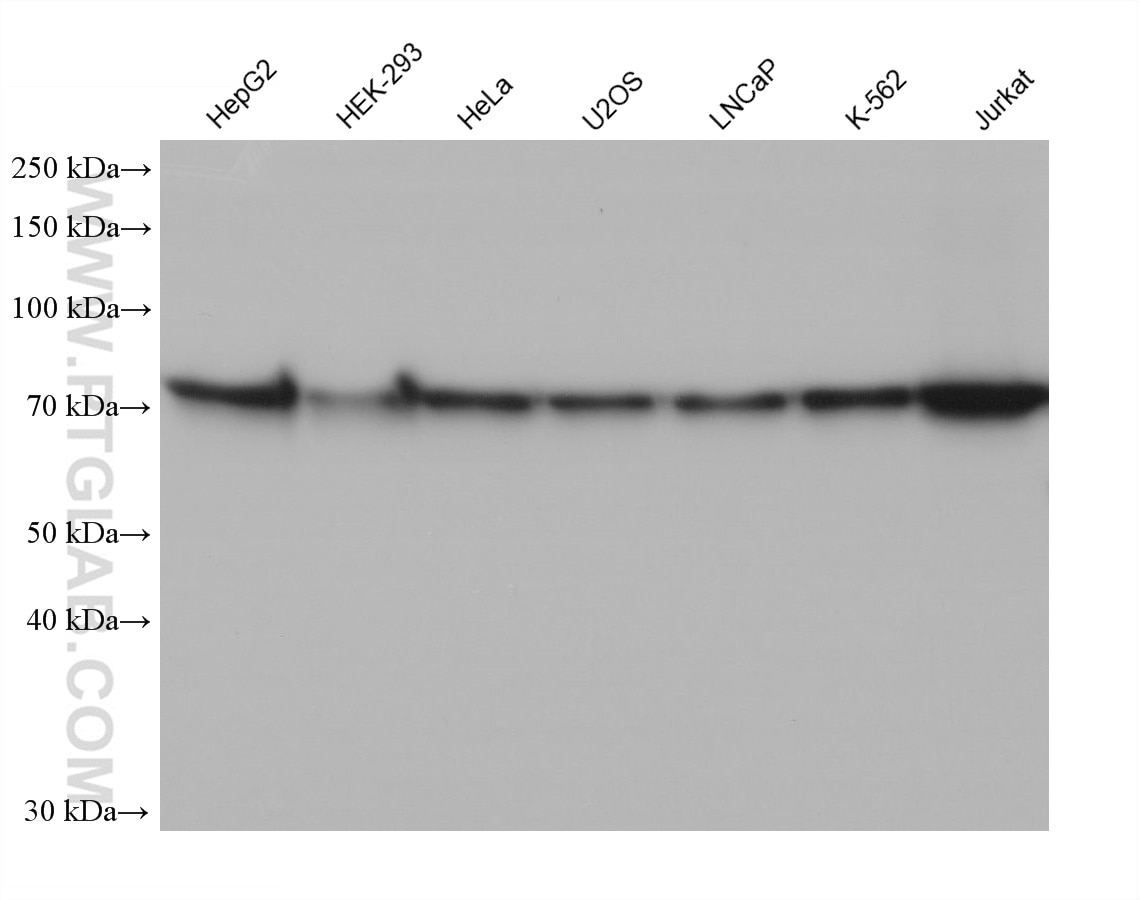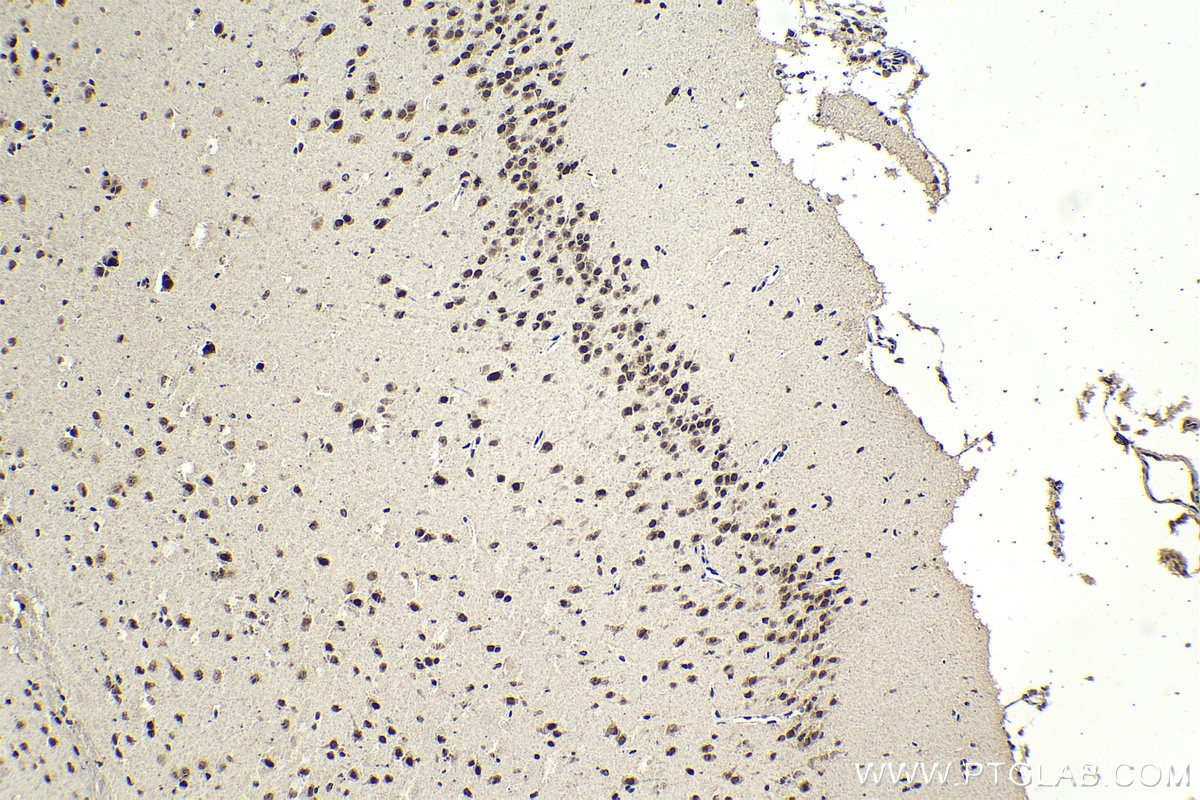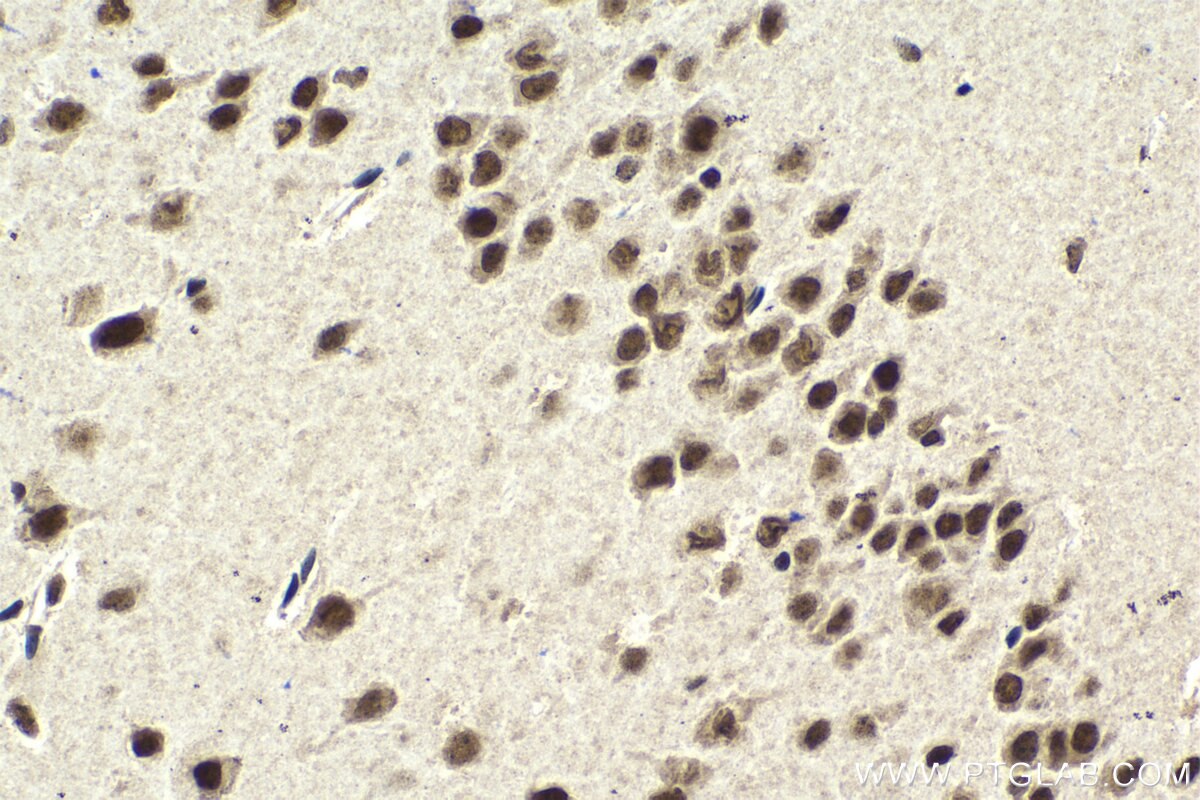MEN1 Monoclonal antibody
MEN1 Monoclonal Antibody for WB, IHC, ELISA
Host / Isotype
Mouse / IgG1
Reactivity
human
Applications
WB, IHC, ELISA
Conjugate
Unconjugated
CloneNo.
3A6A11
Cat no : 68473-1-Ig
Synonyms
Validation Data Gallery
Tested Applications
| Positive WB detected in | HepG2 cells, HEK-293 cells, HeLa cells, U2OS cells, LNCaP cells, K-562 cells, Jurkat cells |
| Positive IHC detected in | mouse brain tissue Note: suggested antigen retrieval with TE buffer pH 9.0; (*) Alternatively, antigen retrieval may be performed with citrate buffer pH 6.0 |
Recommended dilution
| Application | Dilution |
|---|---|
| Western Blot (WB) | WB : 1:5000-1:50000 |
| Immunohistochemistry (IHC) | IHC : 1:250-1:1000 |
| It is recommended that this reagent should be titrated in each testing system to obtain optimal results. | |
| Sample-dependent, Check data in validation data gallery. | |
Product Information
68473-1-Ig targets MEN1 in WB, IHC, ELISA applications and shows reactivity with human samples.
| Tested Reactivity | human |
| Host / Isotype | Mouse / IgG1 |
| Class | Monoclonal |
| Type | Antibody |
| Immunogen | MEN1 fusion protein Ag7566 相同性解析による交差性が予測される生物種 |
| Full Name | multiple endocrine neoplasia I |
| Calculated molecular weight | 68 kDa |
| Observed molecular weight | 68-70 kDa |
| GenBank accession number | BC002544 |
| Gene symbol | MEN1 |
| Gene ID (NCBI) | 4221 |
| RRID | AB_3085184 |
| Conjugate | Unconjugated |
| Form | Liquid |
| Purification Method | Protein A purification |
| Storage Buffer | PBS with 0.02% sodium azide and 50% glycerol pH 7.3. |
| Storage Conditions | Store at -20°C. Stable for one year after shipment. Aliquoting is unnecessary for -20oC storage. |
Background Information
MEN1, also named as Menin or MEAI, is a tumor suppressor protein encoded by the MEN1 gene. It is located in nucleus and ubiquitous expression in spleen and lymph node. The calculated molecular weight of MEN1 is 68 kDa. Its inactivation has been implicated in tumors of many endocrine tissues. Germline inactivating mutations of MEN1 gene are the main cause of multiple endocrine neoplasia type 1 (MEN1), a syndrome characterized by tumors in the pituitary gland, the parathyroid glands, and the enteropancreatic neuroendocrine tissues. Recent study shows astroglia menin deficiency leads to depressive-like behaviors in mice.
Protocols
| Product Specific Protocols | |
|---|---|
| WB protocol for MEN1 antibody 68473-1-Ig | Download protocol |
| IHC protocol for MEN1 antibody 68473-1-Ig | Download protocol |
| Standard Protocols | |
|---|---|
| Click here to view our Standard Protocols |




